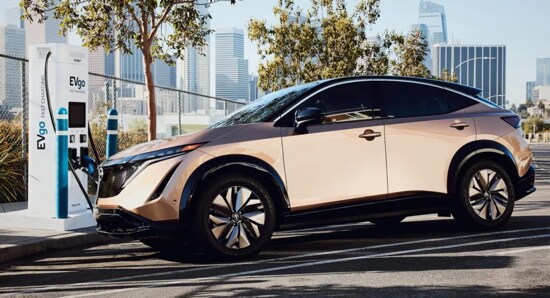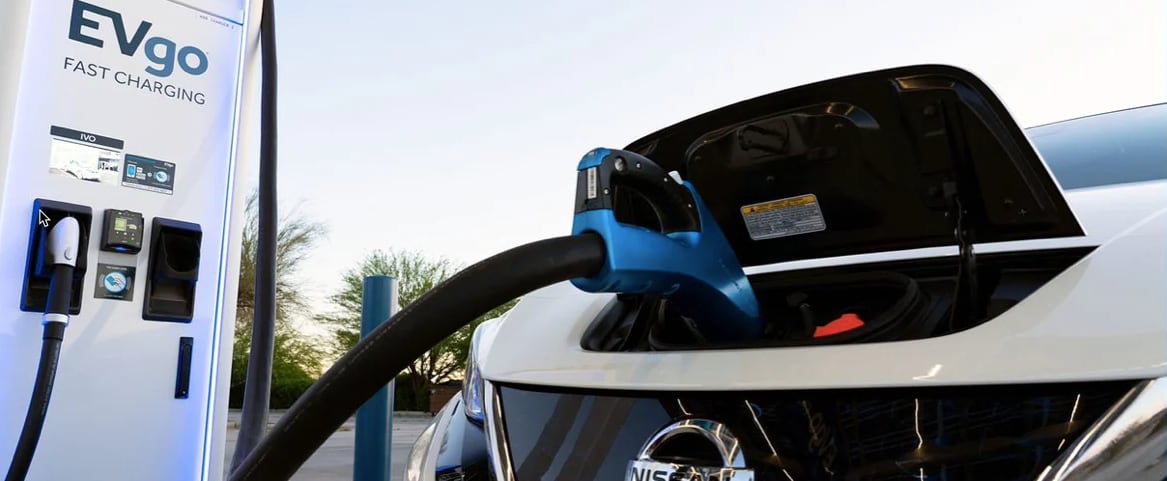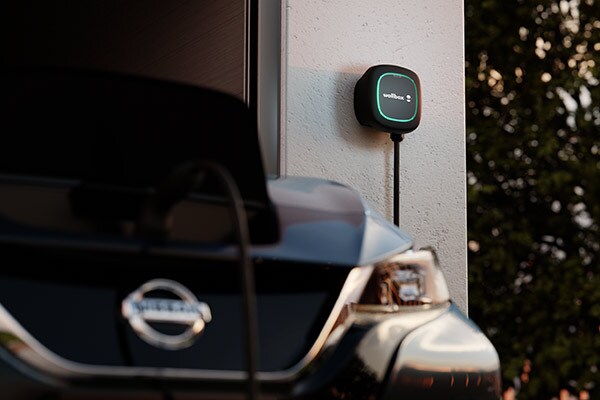
Your Guide to Nissan EV Charging


Get Started with EV Charging
Factors Contributing to Electric Vehicle Charging Speeds
Several factors affect how fast an electric vehicle charges, which means there is no one universal answer. Nevertheless, the speed of the charging system used, the electric vehicle's battery capacity, and environmental factors like temperature will impact the overall charging time.
1. Charging System
Whether you're charging up at home in Ft. Lauderdale or a public fast charging station across town, it's important to remember that each charger will power your vehicle at a different rate. In general, higher-level chargers will provide expedited charging times. So, plan ahead before your road trip to Naples or the Florida Keys.
Level 1 Charging - Plug it in - just like your toaster.
Not that we're comparing your Nissan Ariya or LEAF to a toaster, but charging it is almost as simple. Level 1 charging is for at-home charging, and most electric vehicles come complete with a basic Level 1 charging cable. No additional tools or equipment is needed to get you back on the streets of South Florida. These power cables draw power from a common 120-volt outlet, adding 2 to 5 miles of range per hour of charging. Based on a 40 kWh battery, the estimated time needed to charge an electric vehicle using a Level 1 charger ranges from 28 hours to more than 2 days.
Level 2 Charging - Cranking it up a notch.
Professionally installed Level 2 chargers are utilized in homes and at public charging stations. These units draw power from a 240-volt outlet, adding 10 to 25 miles of range per hour of charging. As a result, Level 2 charging requires much less time than Level 1 charging to charge an electric vehicle from empty to full. A 40 kWh battery will fully charge in 7.5 hours. If you're planning on having an EV in your life and intend to do a lot of driving, the investment in a Level 2 charger is something to strongly consider. There are plenty of installation options in the Miami-Ft. Lauderdale metro.
Fast Charging - Power Please!
Public fast charging stations use direct current (DC) power for expedited charging and are only compatible with certain electric vehicles, including select models of the Nissan LEAF and Ariya. As an example, based on a 40 kWh battery (LEAF S), a 50 kWh fast charger can replenish 80% of an electric vehicle's charge in approximately 40 minutes. A 100 kWh fast charger will charge a 62 kWh battery to 80% in approximately 45 minutes. With the growth of the EV market, fast charging stations are quickly being added around Weston, Hollywood and Pembroke Pines.
2. Battery Capacity
An electric vehicle's battery capacity also affects how long it will take to charge. In general, batteries with smaller capacities will take less time to charge, while batteries with larger capacities will take longer.
However, increased capacity batteries provide more range and require fewer charges.
3. Maximum Vehicle Charge Rate
In the same way that there are limitations based on the specific charge point's rate, each vehicle's maximum charge rate accepted, impacts the speed at which it can receive power. An electric vehicle will only charge at speeds up to its maximum charge rate, regardless of the charger used.
4. Environmental Factors
Outside temperatures can also impact how quickly an electric vehicle will take to charge, as batteries are sensitive to severe heat and cold. To avoid damaging the battery, an electric vehicle's battery management system will automatically slow down charging when extreme high or low temperatures are detected.

Level 2 Charging at Home
Weston Nissan encourages you to investigate the various options available for home charging. Since this requires a 240 volt outlet, you will likely need to hire a professional installer and electrician. Reach out to us to obtain more information.

-
Weston Nissan
3650 Weston Road
Davie, FL 33331
- Sales: 954-715-4371
